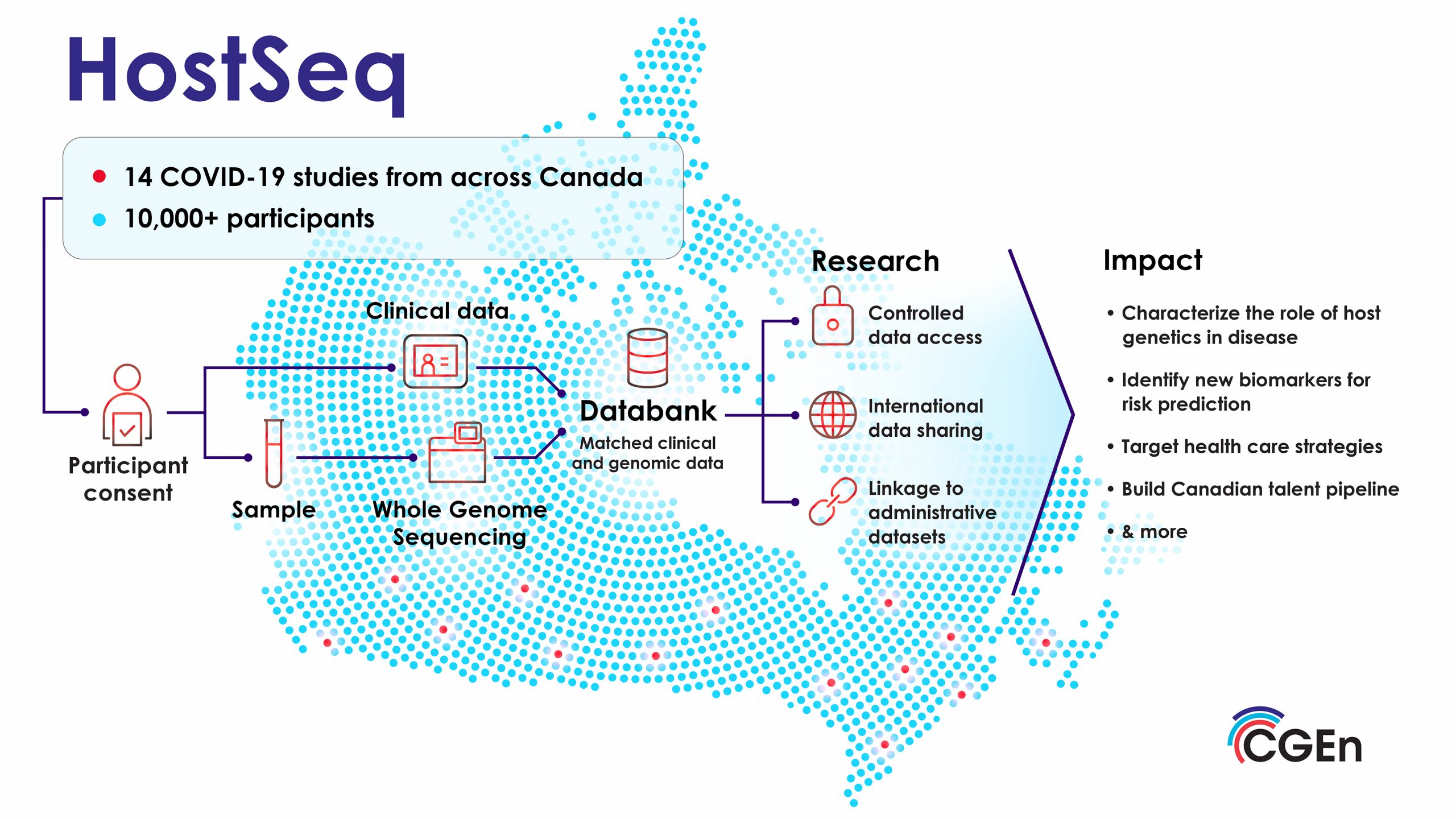CGEn receives $48.9 million in federal funding through the Canada Foundation for Innovation’s Major Science Initiatives Fund
August 19, 2022, TORONTO – From deepening our understanding of climate change to diagnosing rare diseases, to developing targeted treatments for hard-to-cure cancers, new research will unlock the potential for a healthier, more resilient and sustainable future for Canadians thanks to renewed investments in genomics infrastructure in Canada. Announced today by the Honourable François-Philippe Champagne, Minister of Innovation, Science and Industry, CGEn, Canada’s national platform for genome sequencing and analysis, has been granted $48.9 million from the Canada Foundation for Innovation (CFI) through the 2023 Major Science Initiative (MSI) Fund Competition.
“This new investment from the Government of Canada will enable CGEn to harness the power of large-scale genomics and support the scientific community from coast to coast,” says Dr. Naveed Aziz, Chief Executive Officer, CGEn.
As Canada’s national platform for genome sequencing and analysis, CGEn provides genomics services to a wide range of projects led by principal investigators across the country, working in a wide variety of sectors including health, environment, forestry, fishing, agriculture, and other areas important to Canada and its research community.
“Genomics is transforming medical and life science research here at The Hospital for Sick Children (SickKids) and across the country and will underpin Canada’s greatest scientific discoveries to come. Today’s investment will enable Canadian researchers to access and expand the use of genome analysis to address important biological questions at a pace we’ve never seen before,” says Dr. Stephen Scherer, Scientific Director, CGEn-Toronto, Director, The Centre for Applied Genomics (TCAG) at SickKids and Professor of Genome Sciences, University of Toronto.
“The Government of Canada’s investment in CGEn today will not only help to sustain current research, but will also serve as a catalyst for innovative genomics research that may lead to new discoveries and breakthroughs that will be of value to all Canadians in the future,” says Dr. Mark Lathrop, Scientific Director, CGEn-Montreal, Professor of Human Genetics and Scientific Director, McGill Genome Centre, McGill University.
“This renewed funding for CGEn will help to ensure that Canada’s scientific community will continue to have access to the latest, cutting-edge technology, advanced training and expertise, and ensure Canada is poised to handle future challenges requiring large-scale genomics,” says Dr. Steven Jones, Scientific Director, CGEn-Vancouver, Director, Head of Bioinformatics and Distinguished Scientist, Canada’s Michael Smith Genome Sciences Centre, BC Cancer.
With this renewed support from the Government of Canada through the CFI, CGEn is poised to embark upon the next stage of its strategic vision, continuing to provide the leading genomic infrastructure for Canada’s research and innovation community, while also helping to solidify Canada’s position as a genomics world leader by training the next generation of Canadian genome scientists and collaborating with other major centres to push the field even further.
“We remain committed to our vision and core values of providing essential infrastructure and expertise to enhance, accelerate and support genomics research in Canada. We are grateful for CFI’s support to continue our work with partners and stakeholders to forge a path towards a healthier and more sustainable future for all Canadians through the power of genomics,” says Aziz.
For more information about the CFI MSI 2023 awards, please visit the CFI website.
About CGEn
Established in 2017 as a CFI MSI, CGEn is comprised of three nodes: The Centre for Applied Genomics, The Hospital for Sick Children (SickKids), Toronto; McGill Genome Centre, McGill University, Montreal; Canada’s Michael Smith Genome Sciences Centre, BC Cancer, Vancouver. More than 200 CGEn staff serve close to 3,000 distinct laboratory teams, have authored over 670 scientific publications, and the data and support CGEn has provided has helped to train more than 16,000 highly-qualified personnel since CGEn’s inception. With a mandate to make cost-effective and high-quality genome sequencing a reality for all Canadian researchers, CGEn provides services to projects funded by Canadian funding agencies like Genome Canada, the Canadian Institutes of Health Research (CIHR), the Natural Sciences and Engineering Research Council (NSERC) as well as other internationally-funded projects. CGEn’s intensive work with academics, industry and government has substantiated the power of genomics, enabling research and development in Canada and beyond.
Media contact:
Hillete Warner, CGEn
hillete.warner@cgen.ca




